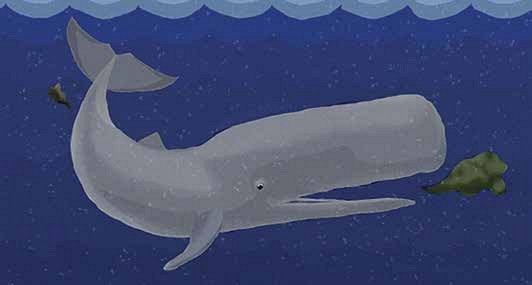Susanne Masters
While alchemists strive to create gold, sperm whales (Physeter macrocephalus) and pygmy sperm whales (Kogia breviceps) dump floating gold in oceans. Sperm whales range across the equator up to the edges of pack ice in the far north and south. Ocean depths are their hunting grounds; squid constitute a large part of their diet. Whales usually dispose of squid’s hard beaks by vomiting. Sometimes they don’t and squid beaks travel through the whales’ four stomachs into their intestines where they are lubricated with ambrein, saturated with faeces, and eventually become a lump of ambergris. In fortunate instances the whale will pass it out when it defecates. Otherwise it remains in the whale slowly growing until it causes a fatal rupture to the whale’s intestines. Unleashed along with poo or when scavengers have eaten the rest of a whale’s carcass, ambergris floats on the sea and occasionally washes up on our shores.

Whales usually dispose of squid’s hard beaks by vomiting
DESPITE GROSS OR GRISLY ORIGINS, AMBERGRIS HAS BEEN VALUABLE FOR 1000 YEARS